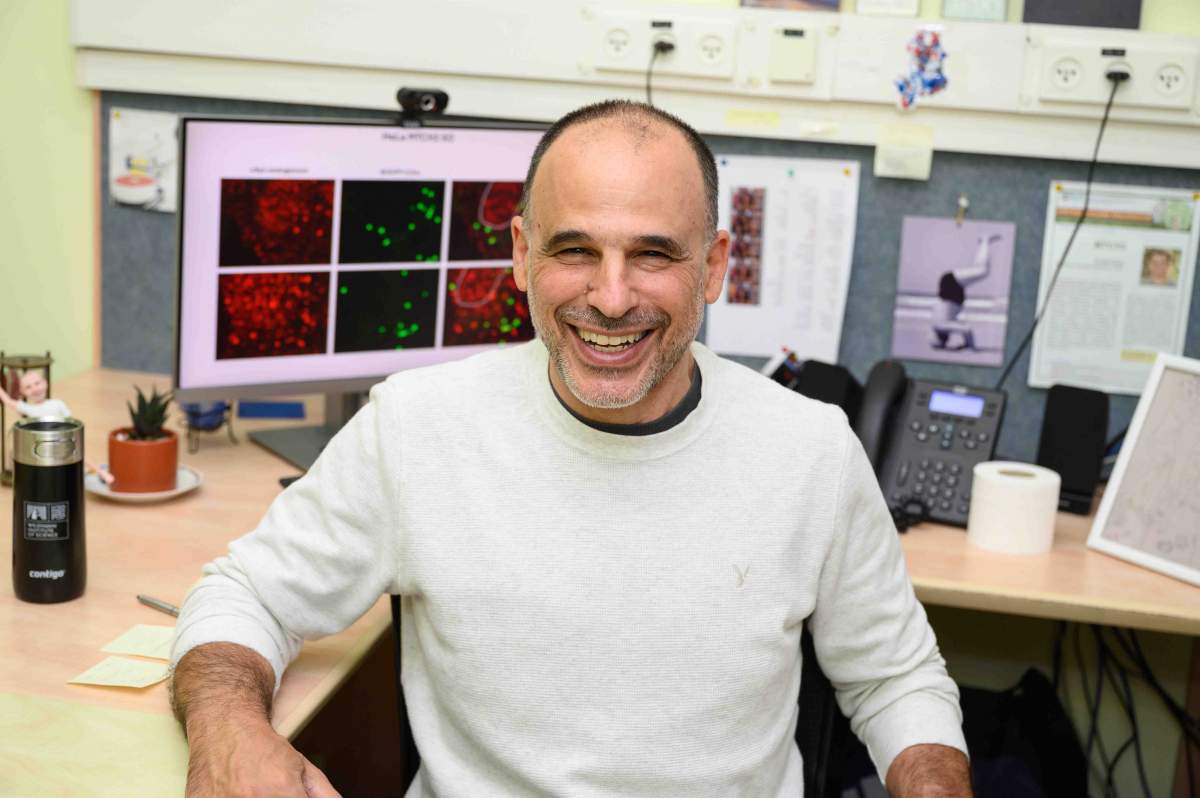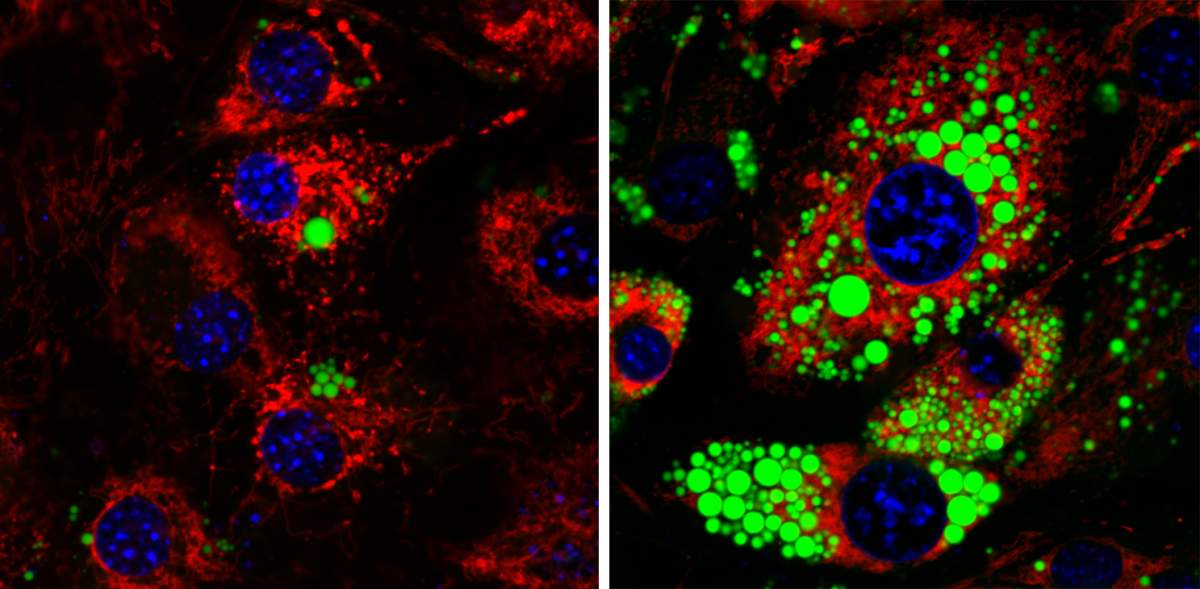Innovative weight-loss drugs burst onto the scene around 10 years ago, promising a healthier, slimmer world. The downside, however, is that these drugs lead to a decline in muscle mass. Several years ago, through a serendipitous discovery, Prof. Atan Gross of the Weizmann Institute of Science came upon a possible solution. When he and his team silenced the expression of the MTCH2 protein, dubbed "Mitch," in muscles of mice, these mice developed increased athletic capacity and were "immune" to obesity, thanks to an accelerated rate of metabolism. In a new study published in the EMBO Journal , Gross's team went one step further on the path to a new treatment for obesity: They showed that in human cells too, silencing the expression of Mitch both increases the rate at which fats and carbohydrates are burned and inhibits the development of new fat cells.

The mice in Gross's original experiment experienced a general improvement in their body composition. Not only were they protected from obesity but they also developed more muscle fibers, which consume large quantities of oxygen and increase stamina. These welcome changes led to improved performance in stress tests and heart function but left researchers facing a mystery: How does silencing the expression of a single protein "inoculate" the body against obesity and, at the same time, improve muscular endurance? The search for an answer led them to the power plants of the cell, the tiny mitochondria organelles responsible for producing energy and driving cellular metabolism.
We can learn a lot about the mitochondria simply by observing their shape and distribution within the cell. These organelles can fuse together, forming an extensive network of power plants that are highly efficient producers of energy, or they can exist as separate organelles that are less efficient at generating energy. To overcome the decrease in efficiency, these separate organelles must use a variety of energy resources - such as fat, carbohydrates and proteins - at a higher rate. Over the years, Gross's team in Weizmann's Immunology and Regenerative Biology Department discovered that in addition to regulating metabolism, Mitch is one of the key regulators governing mitochondrial fusion, which helps us to understand the findings in mice. But would silencing Mitch have similar results in humans?
In the new study, the researchers, led by doctoral student Sabita Chourasia, examined what happens to human cells when the Mitch protein is deleted by means of genetic engineering. The scientists found that the mitochondrial network then collapses, the organelles separate, the efficiency of energy production declines - and the cell goes into a permanent state of energy deprivation. This might sound like a nightmare scenario, but sometimes the lack of energy and its inefficient production can be beneficial - as, for example, when the goal is to offset overeating or to stimulate the use of fat deposits and prevent the accumulation of fat. "After deleting Mitch, we examined, every few hours, the effect that had on more than 100 substances taking part in metabolism in human cells," Chourasia explains. "We saw an increase in cellular respiration, the process in which the cell produces energy from nutrients, such as carbohydrates and fats, using oxygen. This explains the increase in muscular endurance in previous experiments using mice."

To increase the rate of their respiration, cells need more nutrients, which serve as fuel in the energy production process. The researchers saw that the high demand for fuel caused the human cells from which they had deleted Mitch to "burn" more deposits of substances like fats, carbohydrates and amino acids. Moreover, while regular cells use more carbohydrates and proteins, rather than fats, to produce energy, cells without Mitch rely largely on fat to produce energy and to grow. "We discovered that deleting Mitch led to a major drop in fats in membranes," Gross explains. "At the same time, we saw an increase in fatty substances used to produce energy, and we realized that the fat was being broken down from the membrane to be used as fuel. In other words, we showed that Mitch determines the fate of fat in human cells."
During the next stage of the study, the researchers discovered that Mitch's involvement in the accumulation of fat in the body goes even further. Since it was known that women with obesity have elevated levels of Mitch, the researchers postulated that this protein is vital not only for mitochondrial fusion but also for fat cell differentiation, in which progenitor cells accumulate fat and turn into mature fat cells. "When we deleted Mitch from the progenitor cells, we discovered that the environment created in these cells was not conducive to the synthesis of new fats," Gross explains. "Reducing the ability to synthesize membranes prevents the cells from growing, developing and reaching the point where differentiation is possible. The process of fat accumulation requires a large amount of available energy, but in cells without Mitch, there is a shortage of energy. In addition, the expression of genes necessary for differentiation is suppressed, and there is a shortage of the substances vital for this process to occur. As a result, differentiation of new fat cells is reduced, along with fat accumulation."

In light of these promising findings, Gross's lab is currently working, in collaboration with Bina - the Weizmann Institute's translational research unit that identifies early-stage projects with applicative potential - on a comprehensive program to develop a novel small molecule that inhibits Mitch and may serve as an effective treatment for obesity. The program is being carried out in partnership with Yeda Research and Development Company, Weizmann's technology transfer arm.

Science Numbers
According to OECD data , 68 percent of adults in the United States are overweight or obese - the highest percentage among developed countries. This number stands at 55 percent in Israel, 45 percent in France and only 30 percent in South Korea.
Also participating in the study published in the EMBO Journal were Dr. Christopher Petucci, Clarissa Shoffler and Dina Abbasian from the University of Pennsylvania, Philadelphia; Hu Wang and Prof. Xianlin Han from the University of Texas, San Antonio; Dr. Ehud Sivan, Dr. Alexander Brandis, Tevie Mehlman, Dr. Sergey Malitsky, Dr. Maxim Itkin, Dr. Ayala Sharp, Dr. Ron Rotkopf and Dr. Bareket Dassa from Weizmann's Life Sciences Core Facilities Department; and Dr. Limor Regev and Dr. Yehudit Zaltsman from Weizmann's Immunology and Regenerative Biology Department.
Prof. Atan Gross holds the Marketa & Frederick Alexander Professorial Chair. His research is also supported by Amnon Shoham.






